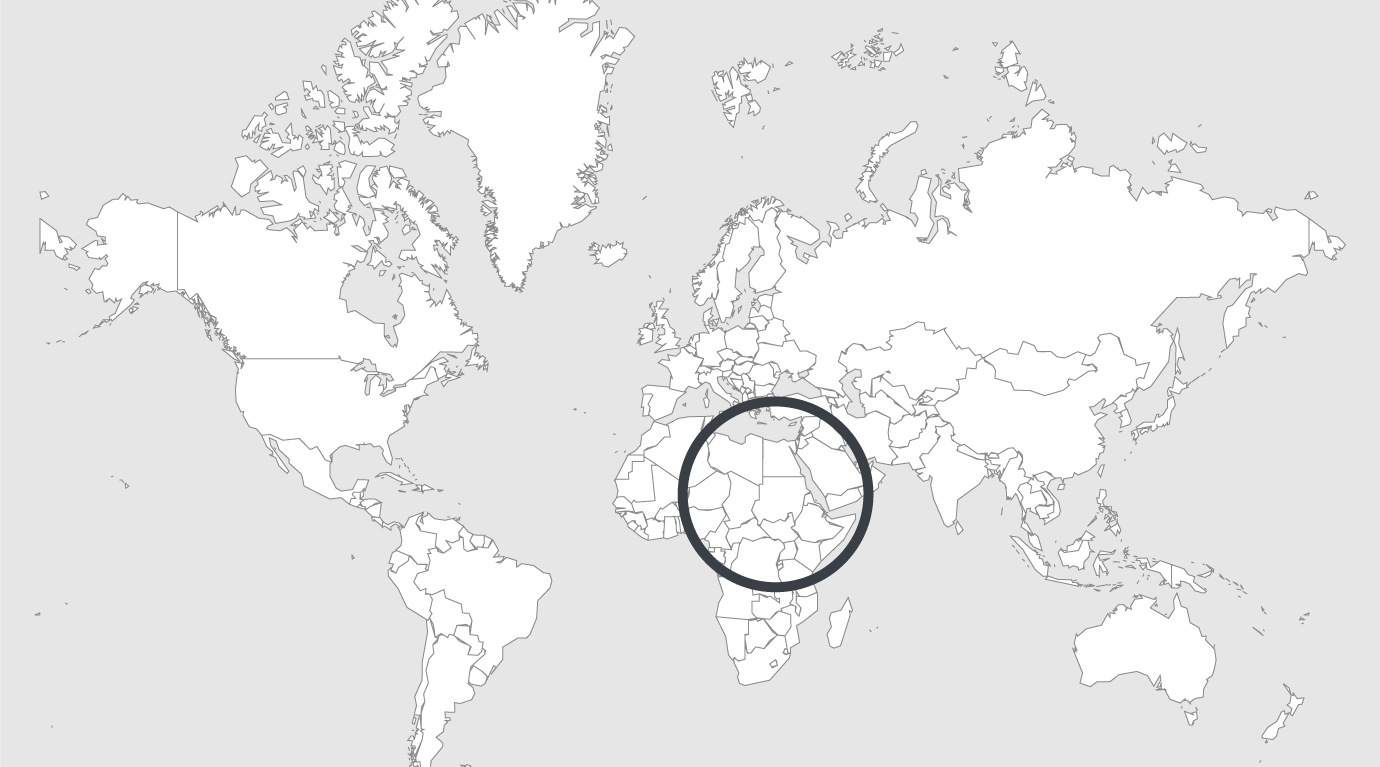
Explore
Another 45 days: the endless uncertainty of pretrial detention in Egyptian prisons
In August 2016, Sabry’s brother sprayed his imprisoned sibling’s face and bandaged limbs, clasped between the claws of an ominous scorpion, onto a wall in downtown Cairo. Next to it he wrote, “This is the third Eid Sabry is spending in prison without having done anything wrong or against the law…” in an appeal to anyone who might walk past and see it.
“On the day of Arafa (the night of Eid al-Adha) and the four days of the holiday, the prisoners are completely locked in,” says Sabry’s mother. She made a trip just before Eid 2016 to Tora maximum security prison, the grisly reputation of which has earned it the name “Scorpion.”
She took with her pasta, rice, four kilos of liver, two kilos of fried chicken, two kilos of Alexandrian birds, four kilos of bananas, three kilos of apples, two kilos of strawberries and three kilos of cantaloupe for her son during the festival. In the end, only two pieces of liver, two pieces of chicken, two apples and two bananas were allowed in by the guards and she had to return home with the rest.
Sabry, who was 26 years old at the time, was arrested on March 29, 2015 from his home in Cairo. He had just come back from a football match and was waiting for a food delivery when there was a knock at the door.
“He opened it thinking it was the delivery man. Instead, we found state security forces wearing black, armed with rifles suddenly all over the flat. They asked for his father, who was not around at the time,” Sabry’s mother says. Then there was some confusion when one of the officers wanted to determine whether Sabry’s name was Mohamed or not. Getting angry and apparently not finding who he was looking for, the officer took Sabry with him.
“You’re coming with me,” the officer told him, making Sabry leave the house barefoot, his mother recounts. “I started shouting at the officer, then I got his shoes and put them on for him. They took him and left,” she adds. “They also went downstairs and took his father from his grandmother’s flat.”
Sabry’s father, who was also arrested in his 20s, had a similar experience. Despite having no connection to political or religious groups, according to his family, he was also randomly arrested and imprisoned for charges relating to terrorist activity in 1986-1987. Since his arrest 20 years ago, Sabry’s father has been regularly harassed by state security without any formal trial.
“We don’t even have to do anything for them to come to the door,” says Sabry’s mother.
Even though the public prosecution issued an official order for Sabry’s release and handed his father a 15-day sentence for belonging to the Muslim Brotherhood, Sabry never came home. His mother moved out of the house with her other sons for fear of their safety and went repeatedly to the public prosecutor’s office asking where Sabry was being held. “They told me, ‘No, your son got released, go and see where he’s gone’,” she says.
Even though the public prosecution issued an official order for Sabry’s release and handed his father a 15-day sentence for belonging to the Muslim Brotherhood, Sabry never came home. His mother moved out of the house with her other sons for fear of their safety and went repeatedly to the public prosecutor’s office asking where Sabry was being held. “They told me, ‘No, your son got released, go and see where he’s gone’,” she says.
For 21 days no one had any idea where Sabry was or what had happened to him, until his mother received a phone call from him. “He said, ‘Mum, listen to me. I was in Lazoghly (the site of the Ministry of Interior and its National Security wing) and they opened a case with state security for me. Now I am going to the State Security Agency prosecutor’s office, please find me a lawyer’,” she recalls.
Sabry also told his mother that he was interrogated without a lawyer present and forced to admit to involvement in terrorist organizations. His name was added to a case from 2014 that already included 14 other suspects he had no relation to, all of whom have now been released at the end of their two-year pretrial detention periods.
Ahmed, Sabry’s lawyer, explains that Egypt’s current laws allow police to detain anyone they presume is a “terrorist” solely on the grounds of a pending investigation.
“There is no actual event or victim,” Ahmed explains, “these charges just come from an officer’s investigations.” Egypt’s National Security Agency is able to have a degree of influence over legal proceedings relating to terrorism charges, and to detain large numbers of people, he adds.
People weren’t convicted en masse under terrorism charges in Egypt until 1992, when the country adopted its first anti-terrorism statute, vague definitions for which include disrupting public order and obstructing the work of public authorities.
Twenty years later this approach was adopted by the 2007 version of the Constitution, and the 2015 Anti-Terrorism Act, which was issued just a few months after Sabry’s arrest, and grants officers the right to detain and arrest suspects without having to comply with the Penal Code.
Read full article.
